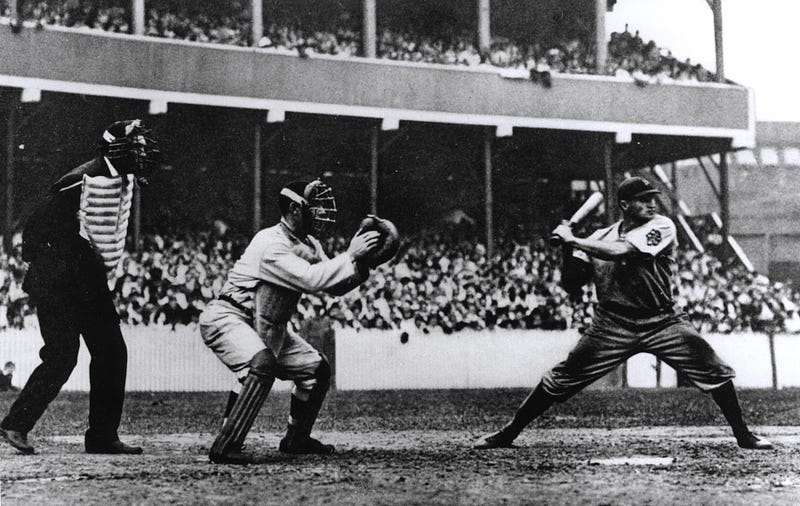
Honus Wagner Hated Baseball’s Changes After He Retired, But Felt They Made The Game Better
One of the sport’s biggest stars preferred when he played, but understood poitive changes that took place in the big leagues
Hall-of-Fame shortstop Honus Wagner played during some baseball’s grittiest days. After he retired, the game saw a number of changes that significantly veered from what he had grown accustomed to during his illustrious career. While he lamented on such progress, he also acknowledged that it made the game better and was popular with fans — so it wasn’t all bad.
A shortstop by trade, Wagner spent his entire 21-year big-league career (1897–1917) with the same franchise, the Louisville Colonels (which eventually became the Pittsburgh Pirates in 1900). He was a superb athlete who could do it all, winning eight batting titles and playing top-notch defense.
Despite having prominent bowed legs, his strength and agility made him a star. With career totals of a .328 batting average, 101 home runs, 1,732 RBIs, 3,420 base hits and 723 stolen bases, it’s little wonder the right-handed legend was part of the initial National Baseball Hall of Fame’s class in 1936.
After Wagner retired, the explosion of home runs and other changes that brought the game into the modern era meant that things looked very different from a competitive standpoint from when he played. In an article that appeared in the March 7, 1948 issue of The Los Angeles Times, he spoke at length about how he noticed baseball had changed and what that meant for fans.
Naturally, the top difference that immediately came to mind was the proliferation of home runs and the gradual abandonment of small ball:
“Babe Ruth changed the game all around. Everybody goes for the fence nowadays, even pitchers. Nobody’s content to punch one through the infield or place ’em. Why, most of the youngsters who comes up to the majors don’t know the first thing about bunting or sliding or running the bases. Their managers just pointed to the fence and let it go at that. The science is gone.”
Sliding was considered an art during Wagner’s day that he described taking great practice to perfect. That too was something he saw gradually disappearing:
“Do you ever see sliding pits any more? No! We used to practice by the hour, ’til we could hook around the baseman with either foot. Our legs would look like raw meat.”
Although many former ballplayers have been featured in articles over the years decrying their perceived downfall oif baseball in the years since they stopped playing, Wagner wasn’t one of them. Instead of being an angry old man shaking his fist at the sky, he was able to acknowledge that different doesn’t always mean worse:
“I’ll say this, too, for the modern game. Players are smarter, better education and all. And somehow there seems to be better all-around teamwork and spirit; it’s hard for me to exactly to put my finger on it but I gotta give ’em credit, there’s plenty of excitement and thrills without the inside skill of the old times.”
If Wagner believed that baseball had drastically changed at the time he gave his interview, it’s interesting to speculate what he would think of the subsequent evolution that has occurred since then. Making changes doesn’t always equate to a positive, but as long as fans remain invested in the game, there will always be an ongoing attempt to tweak and update in the hopes it can always get just a little bit better.
